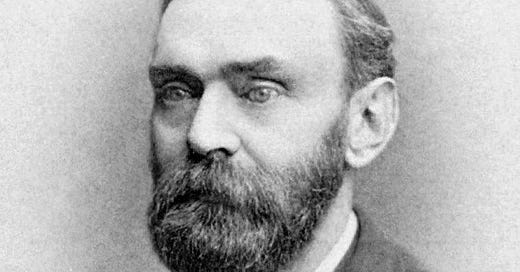Today, 8th October 2024, the Nobel Prize in Physics was awarded to John J. Hopfield of Princeton University and Geoffrey E. Hinton of the University of Toronto. The latter is known for being one of the founders of deep learning, allowing for major advances in different areas such as natural-language translation and protein-folding prediction.
Here is the summary from the press release1:
This year’s two Nobel Laureates in Physics have used tools from physics to develop methods that are the foundation of today’s powerful machine learning. John Hopfield created an associative memory that can store and reconstruct images and other types of patterns in data. Geoffrey Hinton invented a method that can autonomously find properties in data, and so perform tasks such as identifying specific elements in pictures.
What is important to underscore is that the Nobel Prize in Physics was not awarded to physicists, nor to work in physics, but, rather to work in computer science and mathematics. This situation was summarized in a biting manner by Claes Johnson in his blog2:
Because of the deepening crisis of modern physics, the Nobel Committee in Physics, apparently unable to find awardees within physics, seemingly in deep despair turned to AI for help.
No wonder: The 2024 Nobel Prize in Physics was given to AI, more precisely to computer scientist Geoffrey Hinton and scientist/higher education teacher John Hopfield, who are not really physicists.
The Nobel Prize in Physics can thus now be given to non-physicists, if physicist candidates are missing. This would open to give the Physics Prize to mathematicians, which would resolve a controversy (between Nobel and mathematician Mittag-Leffler) from start banning mathematicians. [my emphasis]
Johnson’s last sentence refers to the fact that Alfred Nobel (1833-1896) did not want a prize in his name to be awarded to mathematicians, legend having that this followed from a rift between Nobel and mathematician Gösta Mittag-Leffler (1846-1927).
There are thousands of physicists working around the world, at both the practical and theoretical levels, many doing exceptional work. The decision of the Nobel Committee to award people who are not even working in physics shows contempt for those actually doing so.
At the same time, that decision reflects the growing worries that the very foundations of theoretical physics are in dire need of complete revision. Giving the Physics Prize to AI will in no way contribute to resolving the underlying contradictions.
Marcellus (Hamlet, Act I, scene 4) needs to change his line:
Something is rotten in the state of Sweden.
If you wish to donate to support my work, please use the Buy Me a Coffee app.





I stopped buying/reading New Scientist over 17 years ago because it stopped making sense.
The only physics worth awarding is the new plasma physics paradigm imho, which has its precedent in antiquity. Pythagoras, Ptolemy, even Tycho was more on to the state of reality.
Here's a new one from the Thunderbolts if anyone has 20 minutes to kill.
https://www.youtube.com/watch?v=bGygGius61I
perhaps the prize was not awarded by human judges, but was determined by an AI algorithm instead? and perhaps the new Nobel Committee motto should be - Algorithms of the World, Unite!